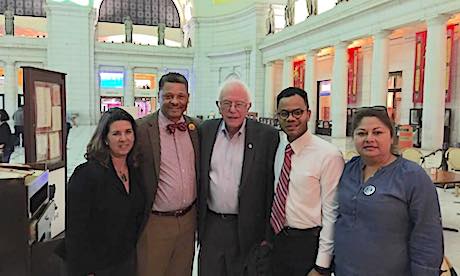Brownsville, South Texas, USA on the border with Mexico is within the fifth country that I have worked in as a Marist priest and is my fourth foreign country. One walks with the people wherever one is but especially when it is with the poor.
But out of respect for the country that permits you do that, you tend to walk and work in silence, offering no political or public comment or opinion outside of preaching the gospel in word and more hopefully in action.
This is not from an undue fear because “the truth will set you free”, but rather it is for respect. One realises that you don’t have the same rights as the full citizens beside you and that the culture is not your own.
However when you are on the “underside” as usually I have found myself to be, you realise that what the institutional “status quo” says is often far from what the many poor and local people think and experience. Here, I might add it can refer to both church and state.
In our case here on the southern border of the USA with Mexico, it came to my attention the comment of one of Brownsville’s daughters when on the 4th April she represented her region at the Capitol in Washington DC with a delegation of the “Southern Border Communities Coalition” which travelled there to manifest the feeling of many people from the southern border who live on the “underside”.
“Southern Border Communities Coalition” is a movement which stretches from San Diego on the Pacific coast to Brownsville here in the Gulf of Mexico. Like the nation-wide and larger “ACLU” (American Civil Liberties Union) the former tries to make known that here on the southern border, the people don’t just sit under cactus bushes and vegetate but are real people who are affected by the decisions made in Washington and state capitals off times without reference to them.
Proof of that is in this little pudding quoted below: At a recent meeting of the “Southern Border Communities Coalition” delegation at the Capitol, Washington DC, our lady delegate from here had this to say:
“Daily life is changing for the worse in my border community. My neighbors live in fear that a traffic infraction may turn into a deportation. Local police are being asked to enforce immigration laws and that violates the trust with the community.
Now the president is proposing spending our taxpayer dollars on expensive and unnecessary walls. We already have walls. I live right next to one that divides our community. Our community is poor. More walls will not alleviate our poverty, pave our streets, or provide the public services we need. Walls are not the answer to anything.”
- Tony O’Connor is a New Zealand-born Marist priest who has worked in Latin America for over 30 years
